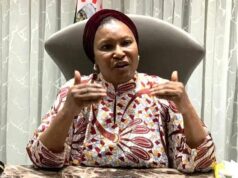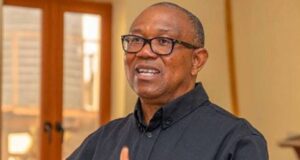Elder statesman Chief Edwin Clark has called for the immediate suspension and overhaul of the Nigerian Governors’ Forum (NGF), accusing the body of undermining democracy and constitutional governance.
In an open letter to Nigerians, Clark criticized the NGF for straying from its original purpose of fostering cooperation among state governors, accusing it of evolving into a powerful political bloc that prioritizes governors’ personal interests over the welfare of the people.
“The NGF began as a platform for collaboration, but it has become a cabal that challenges constitutional order and undermines local government autonomy,” Clark wrote.
He compared the NGF unfavorably to the U.S. Governors’ Association, highlighting its focus on governance rather than political manipulation.
Clark further accused the Forum of manipulating state assemblies, where governors allegedly appoint Speakers and members to suppress dissent and erode legislative independence.
The elder statesman also condemned the NGF for facilitating former governors’ transitions into Senate positions, turning the legislative chamber into a “retirement haven” that weakens its oversight role over the executive.
Clark lamented the Forum’s departure from its founding ideals, stressing that reform should not be seen as an indictment but as an opportunity for improvement.
He urged the NGF to shift its focus back to serving the people.
In a dramatic appeal, Clark proposed suspending the NGF to prevent further crises between state and federal governments.
He also emphasized the need for a complete overhaul to realign the NGF with its original mission.
Clark’s criticism followed the release of a report on the NGF’s health sector expenditure, which highlighted the financial shortcomings of Nigeria’s states.
The report revealed that state governments rely on external funding for 16% of their health budgets, with only 15 states having a medium-term health sector strategy.
It also showed significant budget performance gaps, with health spending falling short of planned targets.
Similarly, the Conference of United Political Parties (CUPP) also expressed concern about Nigeria’s 2025 budget, emphasizing that the heavy allocation to debt servicing could hamper the country’s economic development.
CUPP criticized the budget for placing more emphasis on servicing debts than investing in critical sectors such as education, healthcare, and infrastructure.
Meanwhile, Nasarawa State Governor Abdullahi Sule has withdrawn his opposition to the tax reform bills following extensive discussions and assurances of a review.
Sule had initially expressed concerns about the impact of removing VAT from the Federation Account Allocation Committee (FAAC) but noted that the bills are now open to further review after his objections were addressed.
He commended the National Assembly for its efforts in scrutinizing the reforms before their implementation.

















